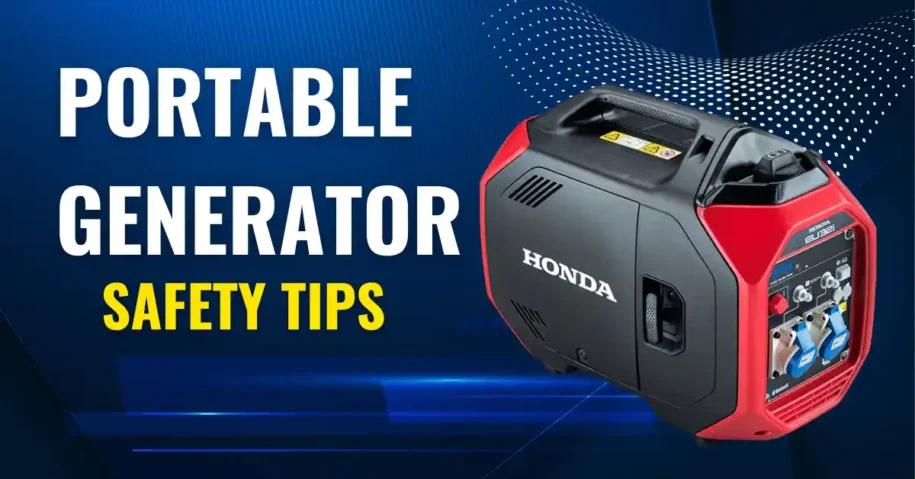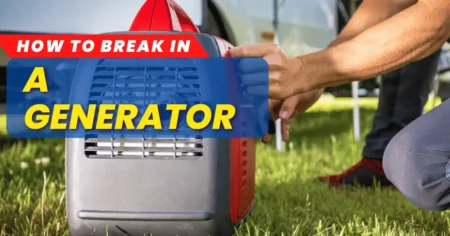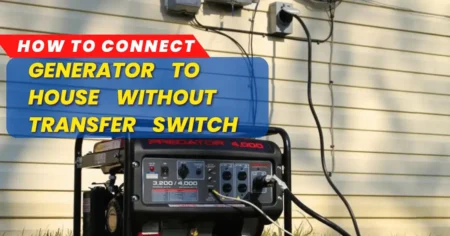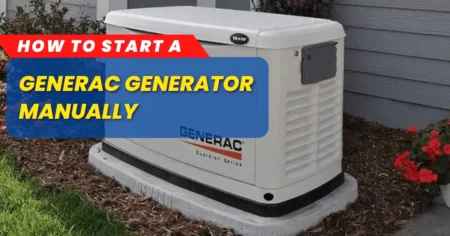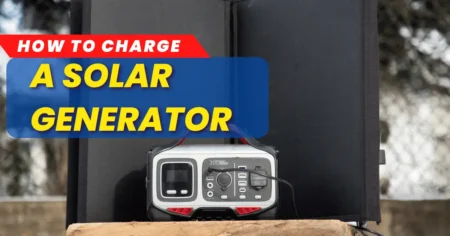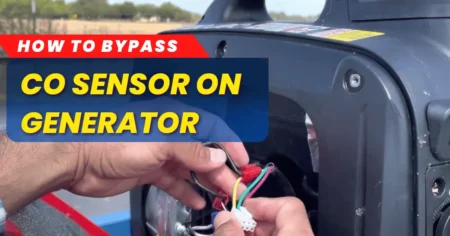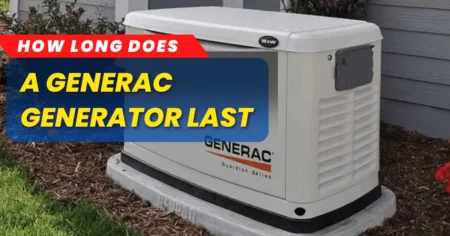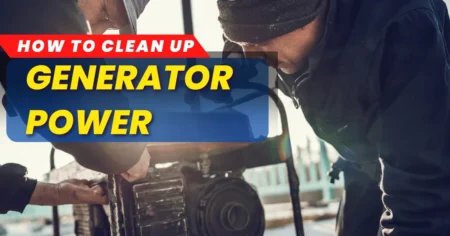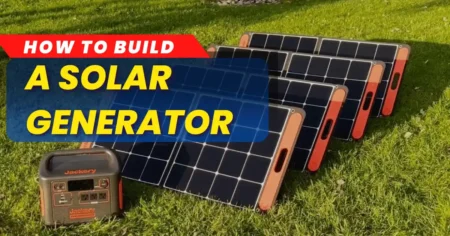Portable generators are invaluable tools for getting electricity during power outages. Also, they are of great help for use at remote locations or during outdoor activities. They work by generating electricity through fuels, gases, or solar energy. And can power everything from small appliances to heavy loads.
Do you know that generators are hazardous when used inside? Also, a minor mishandling results in severe damage. However, portable generator safety tips help to reduce any issues during their working. Let’s get straight into our topic and explore safety tips:
Why are Portable Generators more Hazardous?
Portable generators are more hazardous because they are made for both indoor and outdoor usage. If the generator is working outside, the residents are not exposed to electric or fire risks.
However, in the case of indoor operation a little spark results in massive devastation. You can avoid such scenarios by careful handling.
Portable Generator Safety Tips
Before reading any tips, it’s highly recommended to thoroughly read the manual section and instructions of your generator. Following are some serious issues and their handling during operation:
● Hazards from Carbon Monoxide
Generators produce highly poisonous carbon monoxide gas (CO). We cannot feel or smell CO. However, its inhalation results in difficulty in breathability, which leads to immediate death.
- This risk is reduced by not using generators indoors. Turning on ventilators or fans will not help in such situations.
- If it ever happens, immediately get some fresh air and seek some medical treatment if you feel dizziness or loss of breath.
- Moreover, you can install CO alarms so they will notify you and follow manual instructions.
● Electrical Threats
Electrical threats include shocks, sparks, and short circuits. Sometimes shocks are mild, but strong spark results in on-the-spot death. However, they can be reduced by following portable generator safety tips:
- Don’t use water near generators. Keep them dry and avoid their exposure to rain, snow, or harsh weather. Never touch running electric appliances with wet hands.
- Ground the generators by expert electricians. Grounding helps in reducing the electric shock effect.
- Don’t connect its wiring to your home wiring or switches.
- Always connect loads directly to the generator. Monitor the load ratings and generator output from time to time.
- Don’t use low-quality wires. While making a connection with the generator, use heavy-duty extension wires for appropriate working.
● Fuel Safety
Gas fuel or gasoline is extremely explosive. Must follow these safety fuel points:
- Don’t fill the fuel tank while the generator is running or the engine is hot.
- Don’t overfill the tank, it can cause leakage and explosion.
- Avoid smoking near generators and extra storing in fuel tankers.
● Fire Hazards
Sometimes, careless operating of the generator results in fire breakout. It can be avoided by following these portable generator safety tips:
- Don’t overfill the tool or store volatile gasoline near the generator. It leads to gas vaporization and fire eruption.
- Don’t operate when the engine is more than enough hot.
- Read instructions and contact fire bridges in case of any mishap.
Tips for Safe Portable Generator Operations
Following are some tips for all those looking for the safe functioning of their portable generators:
- Don’t use generators in semi-enclosed spaces, even if they have a ventilation system. Try to use them in garages or gardens.
- Avoid using cheap cords for connection. They can cause unnecessary heat up and tripping. It results in damage to both generators and appliances.
- Let the generator cool before using it again. Hot engines can cause fire or shot circuits.
- Keep a close eye on maintenance and acquire proper management from time to time by experts.
- Avoid connecting excessive loads at once. Keep an eye on the output voltage display for appropriate working and longevity of machinery.
- Don’t ever connect it directly to your house power supply system without transfer switches.
- Keep the children away from it during its running or just after its usage.
- Don’t place the generators close to the walls. Keep them at least 5m away for ventilation.
- Keep it clean and dry. Give it proper cooling time.
- Ensure your generator is properly grounded to minimize electric shocks.
- Must install CO alarms and shut them off if you feel dizzy or inability to breathe.
3 Best Portable Generators
1- Honda EU2200ITAN1 Portable Inverter Generator
This generator from Honda Company is incredibly great and can power heavy loads with 2200W wattage. It provides a reliable power supply with its innovative machinery. The Co-minder helps to monitor CO level and can automatically shut it down in case of emergency.
Moreover, you can get full-time monitoring with the Honda My Generator app on your smartphone. It helps to track output and wattage. Also, it has a paralleling feature to connect it with another Honda EU2200ITAN1 for better power output. This is the best choice for all those looking for reliable backup portable inverter generators.
2- Jackery Explorer 1000 Plus Power Station
Jackery Explorer 1000 is the best indoor generator. As it is operated on solar energy, it has no fuel or shock risks. However, it comes with less output, but the smart features compensate for this.
Buying this allows you to connect multiple pieces of equipment at once. The best thing about Jackery is its sustainability, versatility, and smooth power supply. This reliable tool lasts up to 10 years with the least carbon footprint.
3- Champion Power Equipment 200988 Inverter Generator
Champion Power Equipment is a fantastic inverter generator with 4000W wattage. This is large enough to power refrigerators and other heavy loads. Also, it comes with a cost-effective dual-fuel system. You can get a clean and smooth supply system with this generator.
Moreover, it comes with noise reduction filters and lifetime technical support from Champion manufacturers. You can get 4500W starting wattage and 3500W running wattage with 14 hours of functioning time.
Final Verdict
Portable generators are indispensable during power outages and outdoor activities, but safety should always remain a top priority. By following these comprehensive safety tips, users can minimize the risk of accidents and ensure the secure and efficient operation of their portable generators.
Remember, proper handling and maintenance are key to enjoying the benefits of portable power while keeping yourself and your loved ones safe from harm.
FAQs
Can a portable generator be used in the rain?
Due to the risk of electrical shock from electricity and water, you should not operate your generator in the rain or other bad weather conditions. Instead, you should cover your generator with a permanent cover or use a temporary wet weather cover to keep the electricity on.
Can a portable generator run 24 hours a day?
Most portable generators have a couple of hours of runtime. Some portable generators might only last a day or two at most. It is generally assumed that portable generators are only used occasionally, as their lifespan is only a few thousand hours.
How should a generator fire be put out?
Once the power source has been cut off, use a fire extinguisher to put out the flames. Make sure you have a Class C fire extinguisher, which is the appropriate kind for fighting electrical fires. The extinguisher should also be within reach and in working condition.

